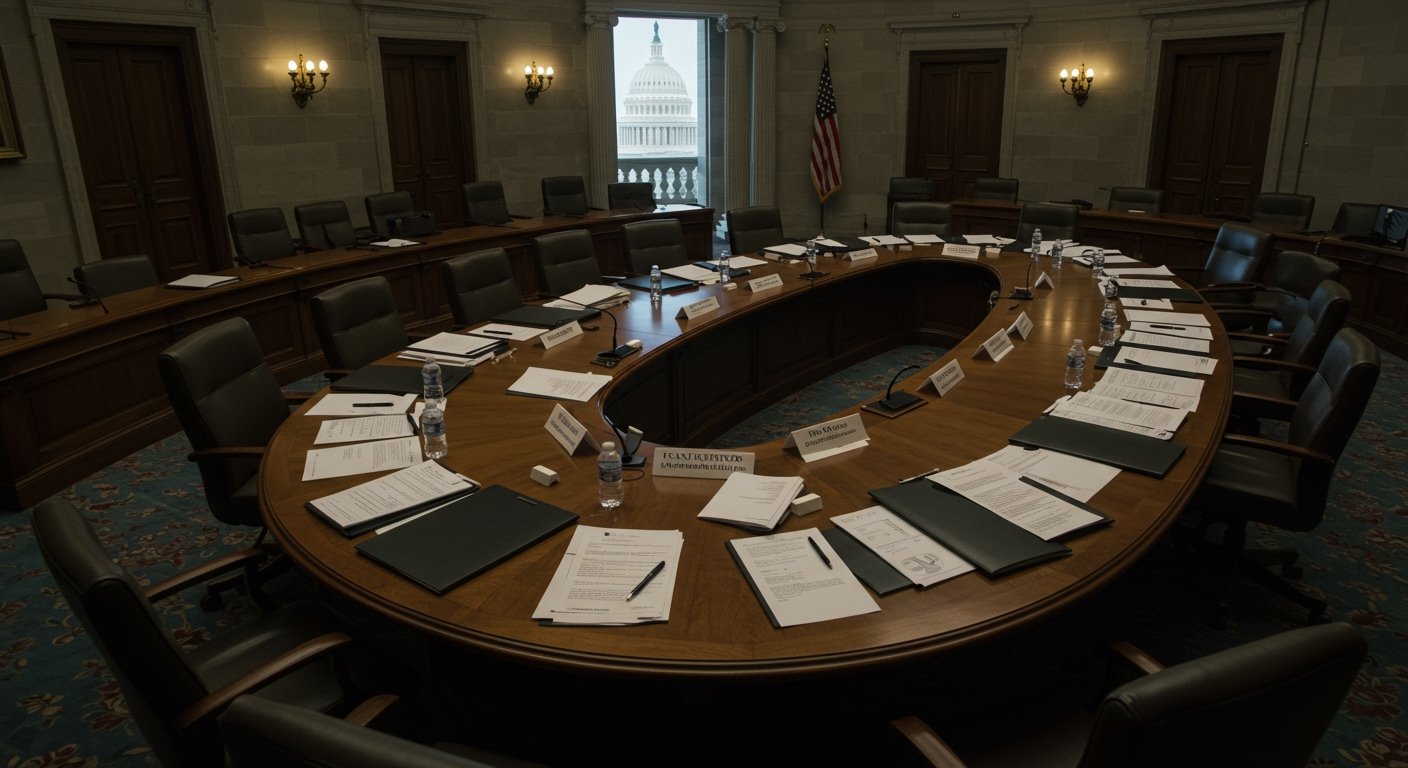Washington D.C. – At the heart of the Republican Party’s major legislative push, a sprawling tax and spending package often dubbed the “megabill,” stood U.S. Representative Jodey Arrington of Lubbock, Texas. As Chairman of the powerful House Budget Committee and the lead sponsor of the legislation, Arrington played a central, intricate role in negotiating the bill’s complex provisions and, critically, uniting the often-fractious Republican caucus behind it. This legislation, authored by Arrington, successfully navigated the House of Representatives and was ultimately sent to President Donald Trump’s desk, meeting a self-imposed July 4 deadline set by the White House.
The passage of such comprehensive legislation is rarely a simple affair, particularly within a diverse political party. The “megabill” itself was ambitious, designed as a sweeping package encompassing significant changes to tax policy and government spending. Its proponents argued it represented a fulfillment of key Republican campaign promises and a vehicle for economic growth. Securing the votes needed for passage required deft negotiation, strategic maneuvering, and a deep understanding of the concerns held by members across the GOP spectrum.
The Architect from Lubbock
Representative Jodey Arrington, representing Texas’s 19th congressional district which includes Lubbock, ascended to the chairmanship of the House Budget Committee, a position that placed him squarely at the center of fiscal policy discussions. This role, combined with his position as the lead sponsor of the “megabill,” made him the primary architect and chief advocate for the legislation within the House. His task was not merely to draft the bill but to shepherd it through the legislative process, which involved constant dialogue and negotiation with fellow Republicans, committee chairs, and leadership.
Arrington’s responsibilities extended beyond policy specifics; he became the central figure tasked with building consensus within the Republican ranks. Navigating the varied interests of fiscal conservatives, defense hawks, social conservatives, and members from politically vulnerable districts required patience and strategic compromise. His leadership was instrumental in transforming a collection of priorities into a cohesive legislative text capable of garnering majority support.
Crafting the “Megabill”: A Strategic Consolidation
The decision by Arrington and other senior House Republicans to consolidate various GOP priorities into a single, massive package was a strategic one. Rather than pursuing individual pieces of legislation that might face separate battles or fail to gain traction, the approach was to create a comprehensive bill that offered something significant to different factions within the party. This comprehensive nature led to its description as a “megabill,” reflecting its broad scope covering both tax reforms and spending provisions.
The specific contents, as described in the negotiation process, included items long sought by elements of the conservative base. The overarching goals articulated by Arrington and other proponents were clear: to stimulate the economy through tax adjustments and align government spending with Republican fiscal principles. The bill was framed as a direct delivery on the mandate voters had given the party in recent elections.
Uniting the Caucus: The Negotiation Strategy
Bringing disparate voices within a political party into alignment on a major piece of legislation is perhaps the most challenging aspect of congressional leadership. Arrington and the Republican leadership faced the task of persuading members from various districts, including those in politically competitive areas, that the bill was in their best interest and aligned with their constituents’ needs. According to accounts from the negotiations, key tactics were employed to solidify support.
One significant element of the strategy involved adjusting the timeline for the implementation of Medicaid work requirements. This provision, a long-standing goal for many conservatives seeking to reform entitlement programs, was reportedly moved up in the legislative timeline within the bill. Accelerating the effective date of these requirements served as a powerful incentive for members prioritizing welfare reform.
Simultaneously, to appease other segments or address specific fiscal goals, the bill reportedly included the repeal of certain clean energy tax credits. This move resonated with members focused on reducing government subsidies and promoting traditional energy sources, while also providing scorekeeping benefits that could help the overall fiscal picture of the bill as calculated by budget analysts. These two specific adjustments – accelerating Medicaid work requirements and repealing clean energy tax credits – were highlighted as examples of the levers pulled by Arrington and leadership to bring members into line and secure the necessary votes for passage.
The Path to Passage and the July 4 Deadline
With the negotiation complete and the contents finalized, the “megabill” authored by Representative Arrington proceeded through the legislative process in the House. Committee approvals and floor debates culminated in a vote on the House floor. The successful passage of the bill represented a significant legislative victory for the Republican majority and for Chairman Arrington personally, validating his efforts in drafting and negotiating the package.
A critical external factor influencing the timeline was President Donald Trump’s self-imposed July 4 deadline. The White House had signaled a strong desire to see significant legislative accomplishments reach the President’s desk by this patriotic milestone. This deadline added pressure to the negotiation and legislative process, requiring swift action and efficient management to ensure the bill cleared the House in time to be transmitted to the President.
Addressing Political Headwinds
Major legislative overhauls inevitably face criticism, both from the opposing party and, at times, from within one’s own ranks or external observers. One particular concern raised about the “megabill,” given its comprehensive nature and potentially controversial elements like the Medicaid work requirements and repeal of clean energy credits, was its potential impact on Republican members representing swing districts. These lawmakers often face tougher re-election battles and can be vulnerable to attacks regarding specific policy provisions.
Representative Arrington, however, publicly waved off these concerns. He argued forcefully that the bill’s overall economic benefits would outweigh any potential political liabilities in competitive districts. His core argument was that the bill would boost the economy and that delivering on the GOP’s mandate – the promises made to voters regarding tax reform, spending cuts, and regulatory changes – was the most crucial objective. He contended that fulfilling these promises would ultimately resonate positively with voters and strengthen the position of Republican incumbents, regardless of their district’s political leanings.
Significance and Outlook
The passage of the “megabill” through the House, largely orchestrated by Representative Jodey Arrington, marked a significant legislative milestone for the Republican Party. It represented a successful effort to consolidate diverse policy objectives into a single package and navigate the internal political dynamics required to pass it. The bill’s journey to President Trump’s desk by his stated July 4 deadline underscored the urgency and priority placed upon this legislation by the administration and House leadership.
As the bill awaited action from the President, its proponents, led by Arrington, remained confident in its potential to achieve its stated goals of boosting the economy and fulfilling the party’s mandate. The intricate process of its creation and passage highlighted the critical role played by key legislative leaders like the Budget Committee Chairman from Lubbock in shaping national policy through complex negotiation and strategic coalition-building within Congress.






